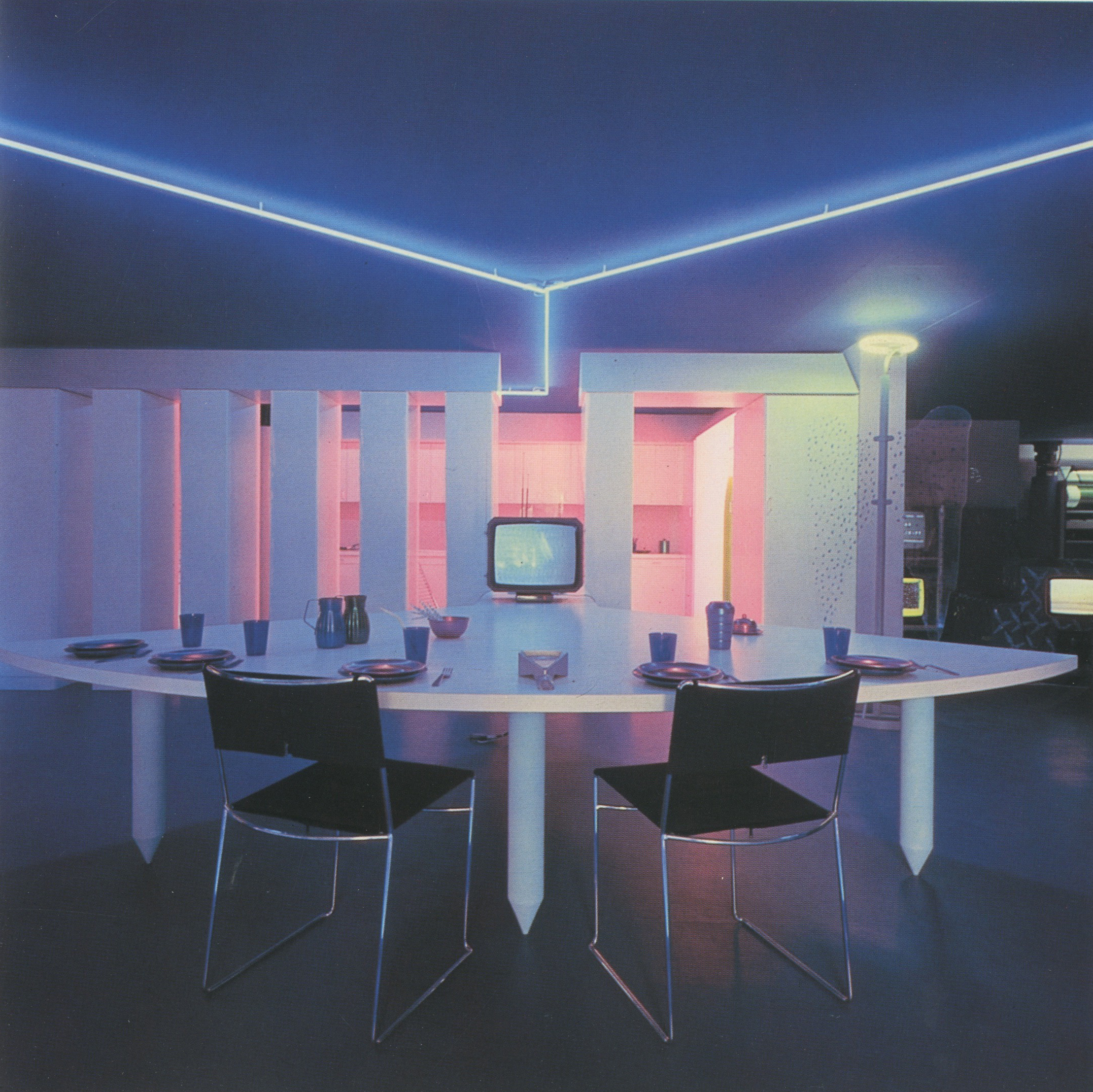Architecture and Television in the 1980s
H18:00
‘I pomeriggi series 2021/2022’
H18:00
‘I pomeriggi series 2021/2022’
The event will be held in English at Istituto Svizzero, via del Vecchio Politecnico 3, Milan.
Free entry within the limited capacity of seats, register here.
I pomeriggi series 2021/2022
I pomeriggi 2021/2022 at Istituto Svizzero is a series dedicated to our fellows. It is an opportunity for the public to learn more about the projects they are working on during this year’s residency.
The event is curated by Davide Spina (Fellow Milano Calling 2021/2022, History and Theory of Architecture).
Architecture and Television in the 1980s
The 1980s were a decade of profound transformations across the Global North. Consider the rise of Neoliberalism, financial deregulation, and postmodernism in philosophy and the arts: many of the things that define our daily life today seem to have emerged in those ten years. Among them were also new forms of technology and entertainment, like computers and commercial television. The latter in particular witnessed a veritable boom during this decade, especially in Europe. And architecture was a vehicle for this boom, both as the content of the medium (set designs) and its infrastructure (broadcasting studios, pop-up studios, antennas, etc). In addition, and equally importantly, television became a driver for architectural change, impacting the design and experience of domestic and public space.
The conference will address the many intersections of architecture and television in the 1980s. The programme will feature lectures by Léa-Catherine Szacka (University of Manchester/ETH Zurich) and Davide Spina (ETH Zurich), followed by a discussion moderated by Massimo Scaglioni (Università Cattolica del Sacro Cuore/Università della Svizzera Italiana).

Biographies:
Massimo Scaglioni is Full Professor at the Università Cattolica del Sacro Cuore, Milan – Faculty of Foreign Languages/Department of Communication and Performing Arts – where he teaches Media Economics (MA) and Media History (BA). He is also the co-Founder and current Director of Ce.R.T.A. (Research Center for Television and Audiovisual Media at Università Cattolica, Milan). His most recent work, A European Television Fiction Renaissance: Premium Production Models and Transnational Circulation, was published by Routledge in 2021.
Léa-Catherine Szacka is Senior Lecturer (Associate Professor) in Architectural Studies at the University of Manchester and visiting tutor at the Berlage. In 2021-2022 she is a Guest Academic at ETH Zurich. Léa-Catherine Szacka is the author of Exhibiting the Postmodern: The 1980 Venice Architecture Biennale (Marsilio, 2016) and of Biennials/Triennials: Conversations on the Geography of Itinerant Display (Columbia Books on Architecture and the City, 2019). She is co-author of Le Concert: Pink Floyd à Venise (B2, 2017) and co-editor of Mediated Messages: Periodicals, Exhibitions and the Shaping of Postmodern Architecture (Bloomsbury, 2018) and Concrete Oslo (Torpedo Book, 2018). Her writing appeared in Log, OASE, AA Files, AD, ARCH+, ATR, Volume, Art Papers, The Journal of Architectural Education, and The Journal of Architecture. In 2020, she co-founded PASZA, a platform for architectural research that will co-curate the tenth International Architecture Biennale of Rotterdam next fall.
Davide Spina is a Postdoctoral Researcher at the Institute for the History and Theory of Architecture, ETH Zurich, where he also completed his doctorate (with Distinction—ETH Medal). Prior to this, he completed the architectural history MA at The Bartlett, UCL. Davide Spina was a Collection Research Grant recipient at the CCA (2016), a Visiting PhD Scholar at the Columbia GSAPP (2017), and a Fellow at Istituto Svizzero in Rome (2018–19). Currently, he is a 2021–22 Fellow at Istituto Svizzero in Milan and a 2021–24 SNF Researcher at ZHAW. At ETH, he co-organises The Architecture of Research, a yearly symposium on research methods, and DocTalks, an international online platform for early-stage researchers in architectural history and theory. Davide Spina’s writing has appeared in AA Files, Log, and gta Papers. His first monograph, Roman Leviathan: Architecture and Capitalism in Postwar Italy, will come out on MIT Press in 2024.
Access is allowed only to those who obtained the Reinforced Green Pass health certificate, which proves vaccination or recovery. It is mandatory to wear a Ffp2 face mask within the spaces.